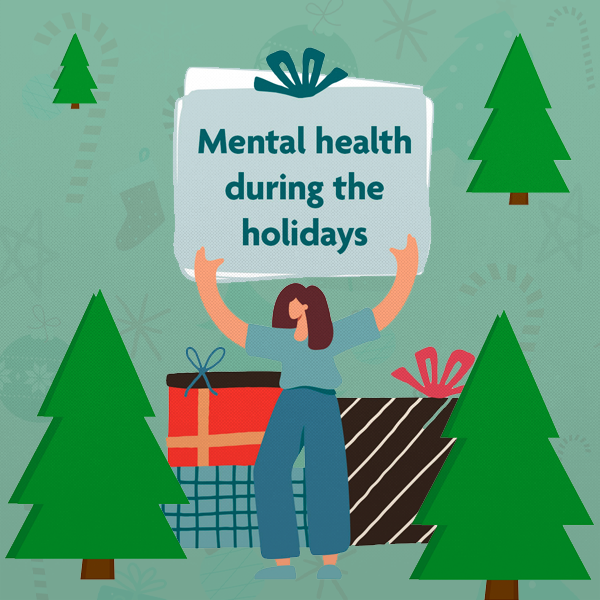Taking care of your mental health should be a priority all year long, but never is it more important (and often never more difficult) than when the holiday season gets in full swing.

Gabriel Jingga/THUNDERWORD
Halloween is in our rear view mirrors, Thanksgiving is in full swing, and December is approaching at full speed. Christmas music is flooding your local mall and students are nearing a much needed break from school. So why do so many people feel more stressed than ever?
The cheer surrounding the winter holidays is seemingly never-ending, but the reality is that depression and anxiety can and does lurk throughout people of every age and demographic, for a multitude of reasons.
Everyone who dreads the holidays has their own reason, but the important thing to remember is that there’s plenty of ways to survive the winter, so let’s tackle the first way to nurture your health.
- Do your best to surround yourself with friends or family.
This is a complicated piece of advice, since many people may not feel secure around their family, but there may be some ways around this. College students may seek out local social programs, decide to binge their favorite show or even find kinship with others in a similar situation.
Depression has been deeply connected with these holidays for most of American culture, and our influx of social media paired with a recent quarantine has kept more people than ever alone in their homes.
Opening up to healthy social bonds can be a wonderful way to stay mentally healthy when some things may seem dour.
- Don’t put the pressure on yourself to make the holidays perfect.
The US is brimming with Christmas movies, most of which give us a picturesque family with a big green tree atop loads of gifts and the truth is not every family looks like that. The economy is, well, the way it is, and there is really no such thing as a “perfect family”.
In a culture so widely ingrained in its cinema, it’s completely natural that we subconsciously expect each and every December to be better than the last, but that’s just unrealistic.
Does that mean you can’t enjoy your holidays? No. But it does mean you don’t need to fit into a cookie cutter definition of successful to have a meaningful Christmas.
- Take it easy on the doom scrolling.
Many Gen X and Millennial adults remember Christmas in the late 1900’s being a cavalcade of developing photos, seeing extended family, and overlooking a broad and wondrous spread of every type of food. Their Gen Z counterparts may have a wildly different aesthetic to the holidays, but in some ways this can mean so much more of the same.
Social mores have been altered in such a way that one’s holiday experience is put on the world stage. Christmas postcards with a family update are now posted sevenfold over the course of December, and thousands of strangers can comment on them in real time.
All in all, the example above of “picture perfect Christmas movie families” is exponentially much more harmful when you see hundreds of them on your phone, seemingly living out their seamless, pristine lives.
Take the time to remind yourself that social media is a very small glimpse into people’s lives, and everyone has their own dysfunction. Find a good movie, invite a friend over, get the ugliest sweater you can and crash someone’s Christmas party (safely).
The phone in your hand can be a detriment to your mental health, but it can also be a liferaft. Call a friend, facetime your closest confidant, or relax in the comfort of your own room and listen to music.
As Highline students approach winter break, some may go visit family, while others may stay local and enjoy the comfort of friends and pets. The Thunderword wishes you the happiest holidays, safe travels, and a timely return to the winter quarter. Stay warm!

